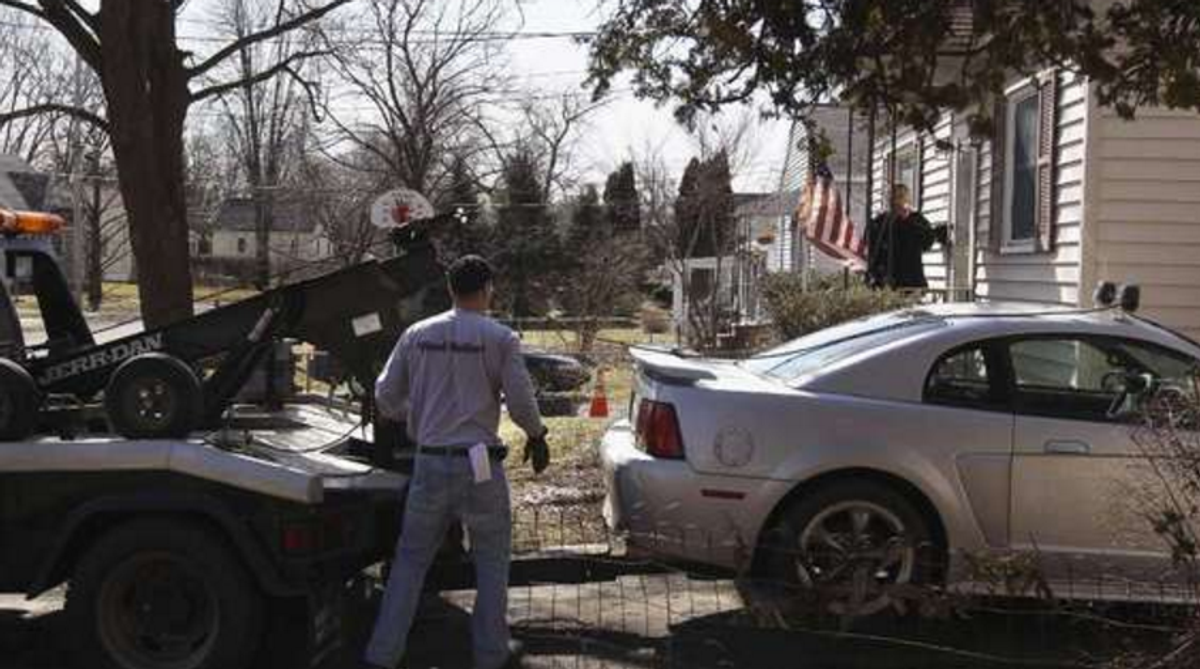On 17 March 2016, the web site Occupy Democrats published an article claiming Republicans in Alabama planned to bar vehicle owners from receiving public assistance (specifically the Supplemental Nutrition Assistance Program, or SNAP, and Temporary Assistance for Needy Families, or TANF):
Alabama Republicans are escalating their war against the poor, wasting precious state resources in a relentless campaign to make life harder for the people of Alabama. Sen. Arthur Orr (R-Decatur) has just proposed a new bill that would prevent people from receiving food stamps or financial support if they own cars and caps the number of years for assistance from five to three. “We want to get people working back in the workforce and not hanging out for public benefits because they can” drawled Orr, perpetuating the cruel myth that welfare recipients are simply lazy moochers – where in fact, two out of three welfare recipients are children, single mothers, or elderly. It would also require new photo IDs for EBT cards, the cost of which would run more than $10 million, and adds another layer of hoops for potential recipients to jump through before they can receive benefits – so much for small government.
The article cited a piece published by Alabama's Montgomery Advertiser, dated 18 March 2016 (originally published on 14 March 2016, and subsequently updated). The article focused on proposed changes to Alabama's administration of public assistance:
The legislation would cut eligibility for Temporary Aid for Needy Families (TANF) from five years to three. It would also require TANF recipients to sign a paper acknowledging they would stick to the requirements of the program, including those related to work. The bill would also prevent the Alabama Department of Human Resources (DHR) from seeking work waivers for those receiving SNAP, and would also require EBT cards for recipients of public benefits to have photos on them.
According to a note at the bottom of the page, the original article had been updated, based on calculations by analysts:
Updated at 2:40 p.m. on March 18: An earlier version of this story stated the legislation's changes to asset calculations could affect car ownership. Analysts say the calculations would not affect primary vehicles.
A cached copy of the 14 March 2016 item contained the following passage, which was later deleted:
The legislation would also end SNAP eligibility for anyone who may not be cooperating with child care enforcement.
The bill would also change asset calculations, which currently allow those receiving benefits to own items like cars. The legislation would end that. Opponents of the bill say that practice allows people on benefits to have access to functional transportation and go to work. The legislation would also make the Alabama Medicaid Agency implement new practices to verify eligibility for the program.
Neither Occupy Democrats nor the Montgomery Advertiser provided specific legislative detail about the bill. A number of items were published in March 2016 about the proposal, but few included information on its name or wording.
We found SB285 on the Alabama State Senate web site, which (as correctly stated by several articles) did seek to clamp down on SNAP and TANF eligibility. However, no portion of it specifically prohibited car ownership:
This bill would further provide for procedures and limitations for various public assistance programs administered by the Department of Human Resources.
This bill would limit the resource limit standard for the Supplemental Nutrition Assistance Program (SNAP) to the federal asset limits, would further provide disqualification periods for violations of SNAP requirements, including a one-year disqualification period for the third instance of noncompliance with any SNAP requirement, would preclude the department from seeking, applying for, accepting, or renewing any waiver of work requirements for SNAP benefits, and would preclude the department from granting categorical eligibility for SNAP benefits.
This bill would require the Department of Human Resources to terminate benefits for any recipient of SNAP benefits upon a determination that the recipient has failed to cooperate with child support enforcement requirements or the Child Support Enforcement Division of the department without good cause, or is delinquent on any court-ordered support payments, including arrears.
This bill would require the Department of Human Resources to place a photograph of the recipient on any electronic benefits transfer card (EBT card) issued by the department.
This bill would provide a lifetime limit of 36 months for temporary cash payments under the state Family Assistance Program administering the Temporary Assistance for Needy Families Program (TANF) and would provide sanctions for violations of TANF requirements, including termination of benefits for the second instance of noncompliance with any TANF requirement.
This bill would require the Department of Human Resources to utilize best efforts to identify purchases at points of sale outside this state using cash benefits under the Temporary Assistance for Needy Families Program (TANF) and to establish a benchmark number of out-of-state transactions using TANF benefits that will automatically generate review of the recipient's residency status by the department.
This bill would also require the Medicaid Agency to implement certain practices relating to identity verification and earnings and asset verification of applicants for benefits.
While it was true that SB285 proposed a number of restrictions and hurdles to Alabama residents receiving or currently eligible for food stamps, the bill did not specifically address cars. The original 14 March 2016 Montgomery Advertiser article that appeared to have inspired other sites' reporting (presumably without first reviewing it) was later updated to correct the assertion that car ownership would prevent individuals from qualifying for public assistance.

